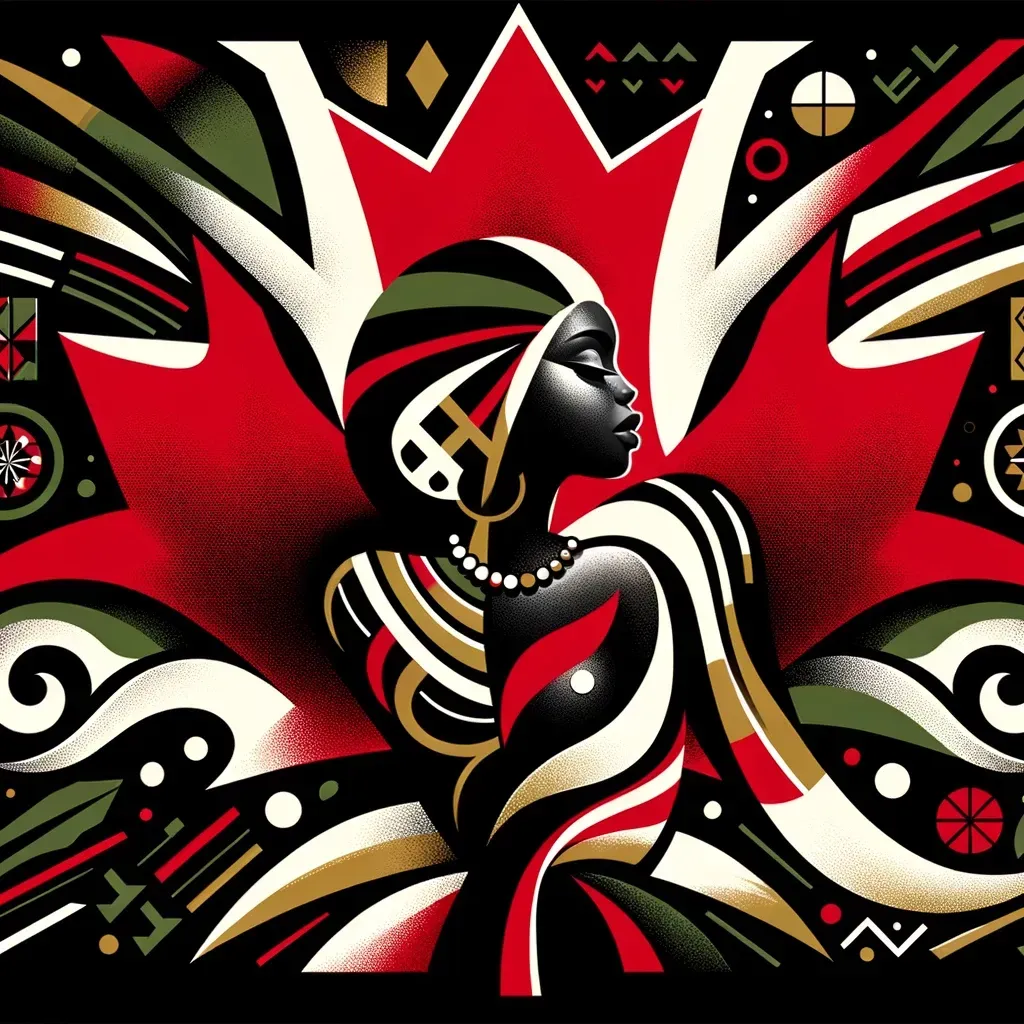
Canadian Black Herstory
“Your dreams are your paints, the world is your canvas. Believing, is the brush that converts your dreams into a masterpiece of reality.” - Kay Livingstone
This is a 4-part series that was originally posted on LinkedIn about Black Canadian women who made a difference in the lives of others. They were leaders in their own right and there is much that we can learn from them.
If you missed the carousel on LinkedIn, you can download it here.
I wrote this post to honour the Black women in my life who have been there as mentors, coaches, sisters, and mothers.
Thank you, C.S., M.G., M.S., and S.M.
-Igor Ristevski
Viola Desmond

Viola Desmond was Canada's Rosa Parks before Rosa Parks, and we can all learn from her courageous example regardless of our background.
Ms. Desmond was an accomplished entrepreneur who opened her own hairdressing salon and launched beauty product lines for Black women.
She also had a beauty school so Black women could have a right to a beautician education that she was herself refused in Nova Scotia.
In 1946, she found herself in New Glasgow, Nova Scotia, while on a business trip.
To pass the time, she bought herself a ticket to the theatre. She bought a ticket for the ground floor where the White patrons sat.
It was a racially segregated theatre, and when she was told to sit in the balcony with the other Black patrons, Ms. Desmond refused.
She was abused, treated like a criminal, and placed in jail on a trumped up charge of "tax evasion" because she didn't pay the extra cent for the balcony ticket.
The Black patrons were taxed at a higher rate.
Ms. Desmond fought the charge in the court system, but she lost on a technicality. Later, she closed her business and left Nova Scotia for good.
Viola Desmond had everything to fear from a system that wanted to deny her her human rights based on a prejudical law.
She may have known she had no chance of winning, but persevered and was vindicated after her death.
She was the first Canadian to receive a posthumous apology and pardon to clear her name.
Sometimes our wins aren't for us, they are for future generations.
Portia White

Portia White was more than a talented contralto singer. She was a resilient Afro-Canadian woman who paved the way for many other Black artists in the Americas.
Ms. White's voice was described as being a "gift from heaven".
She sang classical opera, spirituals, and folk songs during the 1940s and 1950s to critical acclaim in Canada, the United States, South America, and the Caribbean.
She became an international star who performed at prestigious venues such as the Eaton Auditorium in Toronto and City Hall in New York City.
She also briefly came out of retirement to perform for Queen Elizabeth II and Prince Philip in 1964.
Unfortunately, even with all of these accomplishments, she still experienced racism.
Ms. White, like many Black artists at the time, had difficulty securing venues, finding adequate housing, and being stereotyped.
It didn't matter how successful and famous you were.
Interestingly enough, much of the racism Ms. White faced was not documented in detail because according to her niece, she carried herself with dignity and didn't let it get to her.
Portia White had a strong sense of her purpose which was to share her gift with the world.
Segregation would not stop her.
She would break colour barriers for herself and other Black artists that would follow her.
Daurene Lewis

Daurene Lewis was the first Black woman elected mayor in Canada. The compassion she had for her community is something we can all hope to emulate.
She served Annapolis Royal, Nova Scotia, as a nurse, educator, and politician. Ms. Lewis won numerous awards such as the Order of Canada and the Global Citizenship Award.
Her love for her community was one of the reasons she entered into politics.
White males dominated the political scene at the time so she knew it would be a challenge. Annapolis Royal also had a tiny Black population.
Daurene Lewis needed to win over the White residents who were in the overwhelming majority.
She did it in 1984.
Ms. Lewis had a deep compassion for her community and truly believed that her constituents would be better served if she advocated for better education, healthcare, and economic investment.
She wanted everyone to feel valued but she had a special place in her heart for businesswomen.
She listened to her constituents, had long discussions to clarify what they needed, and crafted solutions to improve their lives.
Ms. Lewis said that "idle is a four-letter word" and she worked tirelessly for her community by volunteering her time to join boards and councils to shape policy.
When she passed away she was the principal of two community colleges.
However, Daurene Lewis also had a fun side and liked stylish clothes as this picture demonstrates.
Kay Livingstone

Kay Livingstone was a social activist who advanced the cause for Black Canadian women. We can all learn from the way she communicated her ideas.
Ms. Livingstone was born to a family of activists. Her father, James Jenkins published a newspaper called The Dawn of Tomorrow which focused on Black issues. This likely inspired Ms. Livingstone to a career in advocacy.
She was also an actress and a radio host and she leveraged these communication skills when she gave her talks on racial and gender equality.
She was able to convey complex issues around race and justice with eloquence, clarity, and conviction.
Her communication style was inclusive and sought collaboration from other Black women.
Kay Livingstone had a keen interest in the well-being and contributions of Black women and she formed what is now the Congress of Black Women of Canada (CBWC) from tea parties she held with her friends.
Ms. Livingstone is famously credited with coining the term ‘visible minority’ to describe racialized communities often overlooked in Canada.
This term would make its way into Canadian legislation - The Employment Equity Act of 1986.
Kay Livingstone listened and she made others listen to her.
Remember these Black women and learn from their journeys.
Viola Desmond - Courageous
Portia White - Resilient
Daurene Lewis - Compassionate
Kay Livingstone - Persuasive
If you have all four of these qualities, you will become an unstoppable leader.
Additional Resources
Viola Desmond
https://www.thecanadianencyclopedia.ca/en/article/viola-desmond
https://parks.canada.ca/culture/designation/personnage-person/viola-desmond
https://humanrights.ca/story/one-womans-resistance
Portia White
https://www.thecanadianencyclopedia.ca/en/article/portia-white-emc
https://parks.canada.ca/culture/designation/personnage-person/portia-may-white
https://uwaterloo.ca/library/special-collections-archives/blog/post/portia-whites-debut
Daurene Lewis
Kay Livingstone
https://www.thecanadianencyclopedia.ca/en/article/kay-livingstone
https://parks.canada.ca/culture/designation/personnage-person/kathleen-kay-livingstone
Black history is for everyone and it should be acknowledged every month.
The Black experience in Canada was unique in many ways but the themes of justice and humanity were at its core.
Those are universal themes that apply to peoples of every race.
These Black women took great risks to make the world better for their community and others.
What small risks will you take to make the world a better place for your community and others?
l I'd love to hear your insights, so please feel free to connect with me on LinkedIn and send me a DM by clicking here.
-Igor Ristevski
